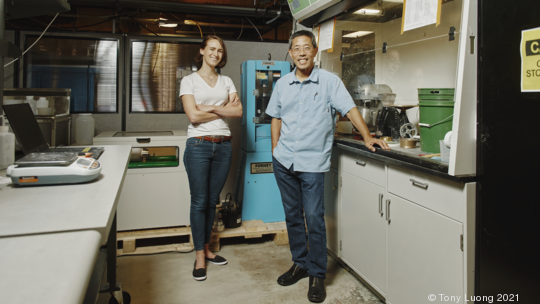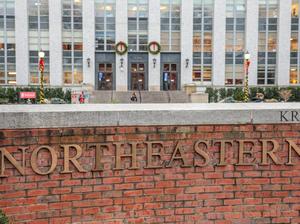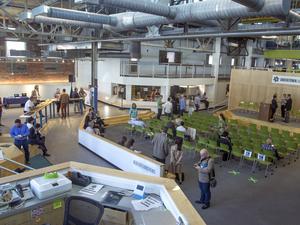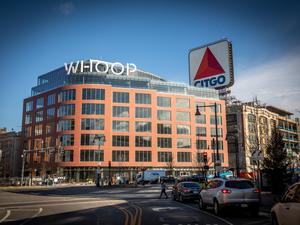
The concrete industry is responsible for about 8% of global CO2 emissions, according to the think tank Chatham House. A main driver of this is the production of cement, a key ingredient in concrete.
“As you’re walking down the sidewalk, by the time you’ve walked about 10 of those squares of concrete, you’ve walked across about a ton of cement. And it’s emitted about a ton of CO2 in getting there,” said Yet-Ming Chiang, a MIT professor and serial climatetech entrepreneur.
A Somerville startup co-founded by Chiang announced a $40 million Series A round this week to scale its work in decarbonizing cement. Sublime Systems’ new funding was led by Lowercarbon Capital and included existing investors like The Engine and Energy Impact Partners. Siam Cement Group, a large cement producer in Southeast Asia, also joined as a strategic investor.
Chiang and co-founder Leah Ellis, the company’s CEO and one of MIT Technology Review’s 35 Innovators under 35 in 2021, launched Sublime Systems on Pi Day (March 14) in 2020. Since then, the company has grown to 40 employees, raised about $50 million to date and opened a pilot facility. Sublime Systems is based at Greentown Labs.
Traditionally, cement is made by burning limestone along with sand, clay, and other materials in a fossil-fuel fired kiln, Ellis explained. Half of the carbon emissions come from the limestone as it’s heated to around 1,500 Celsius. The other CO2 emissions come from the fossil fuels needed to get to that temperature.
Chiang said this method has been used for around two centuries, ever since portland cement — the most common type of cement — was introduced. He said the CO2 emissions from cement were not a focus until the last 10 years. Now, the cement industry is getting a makeover.
“We’re reinventing the process and input materials,” Chiang said. The MIT professor has co-founded companies like A123 Systems, 24M Technologies and Form Energy.
Sublime Systems has its own proprietary cement formulations that emit less CO2, Chiang said. The company is also using renewable electricity to carry out the chemical reactions that traditionally are done via a kiln. Chiang said the first formulations they’re bringing to market will have 60% to 70% less embodied CO2 than portland cement. They expect to get “very close to zero over time,” Chiang added. And the company says no quality is lost in the process.
“What we’ve come to understand is that we can get that fast setting, fast strength development, all of those desirable properties,” Chiang said.
The new Series A funding will allow Sublime Systems to complete its pilot phase, Ellis said. The capital will also help them site and develop the engineering package for a demonstration-scale plant, which could produce tens of thousands of tons per year. Given the size requirements, Ellis said this would not be at Greentown Labs.
In the next few years, Chiang said the company plans to produce enough cement to fill silos at concrete plants to prove out its product.
“What we believe we’ve developed is the lowest energy process for making the same hardened cement and concrete that the world is accustomed to using and needs to continue using in order to accommodate the building needs of society,” Chiang said.








